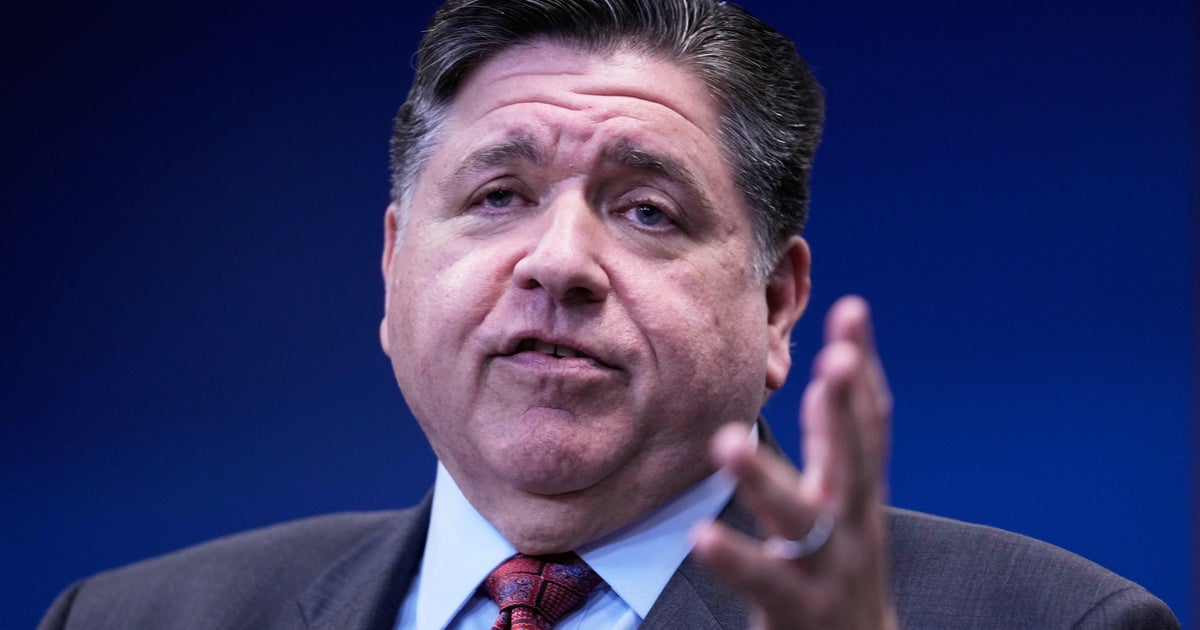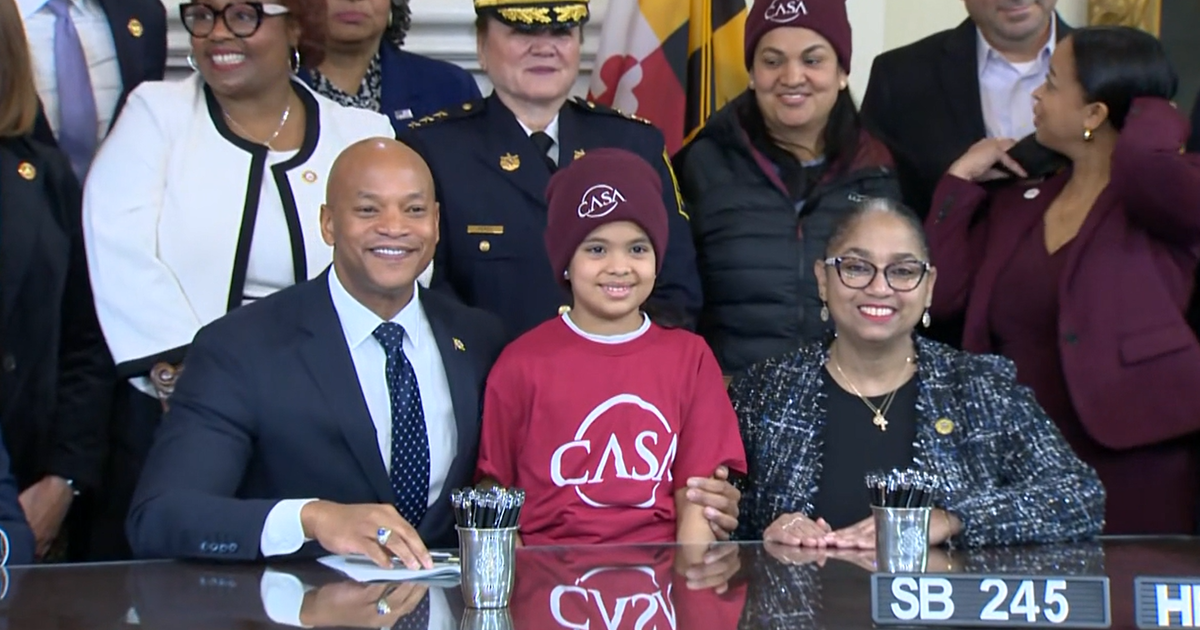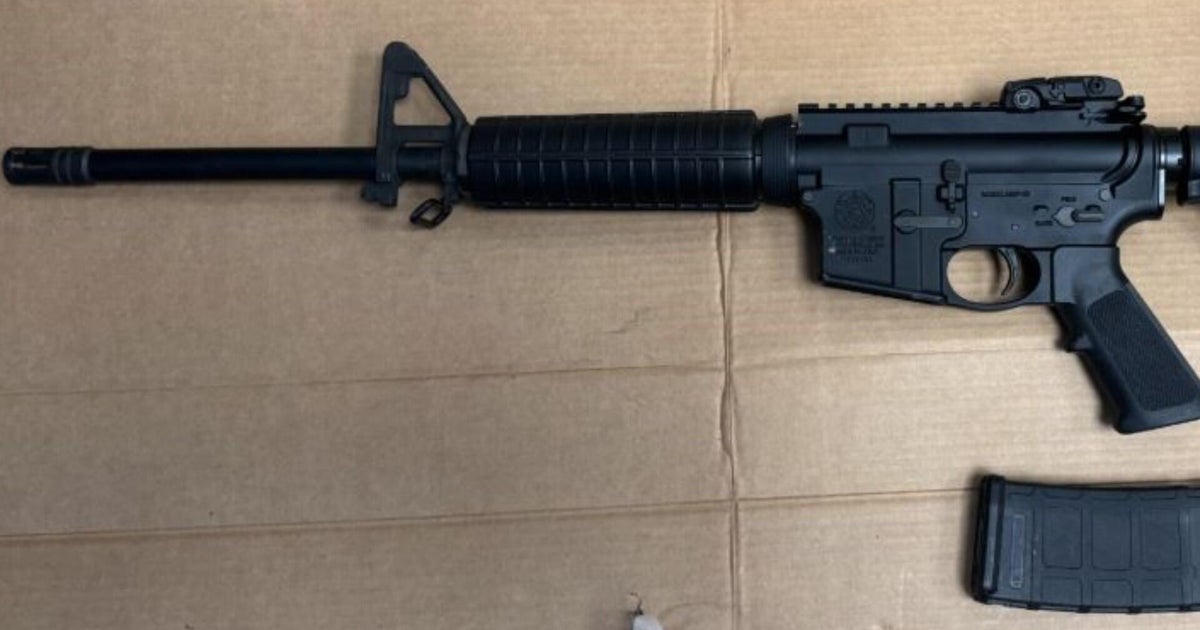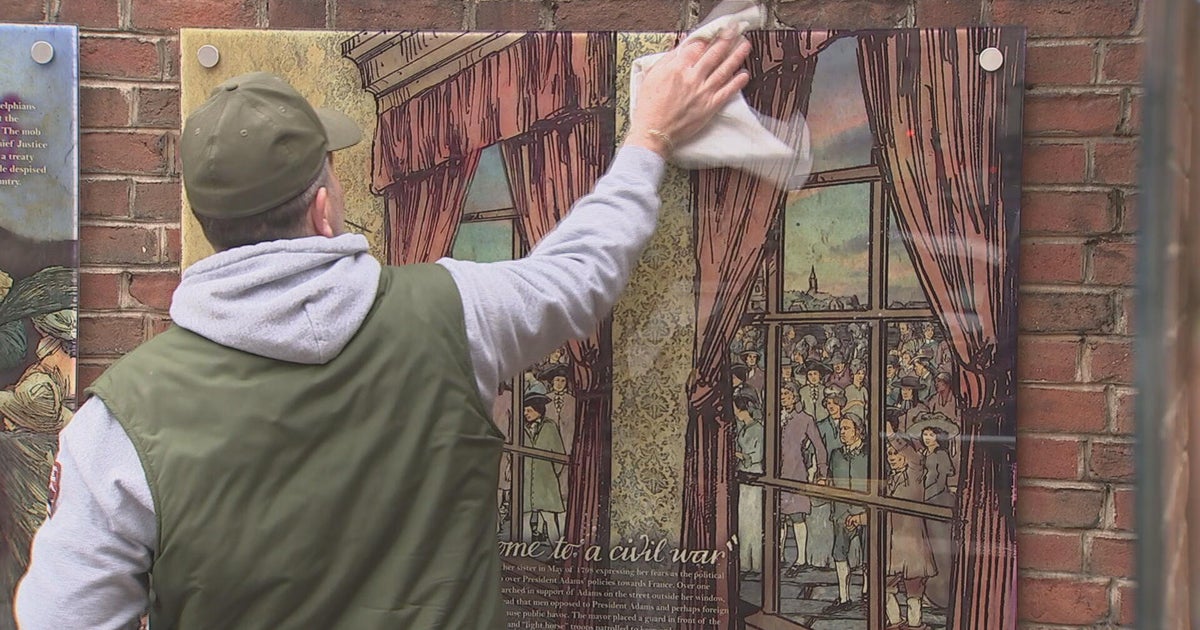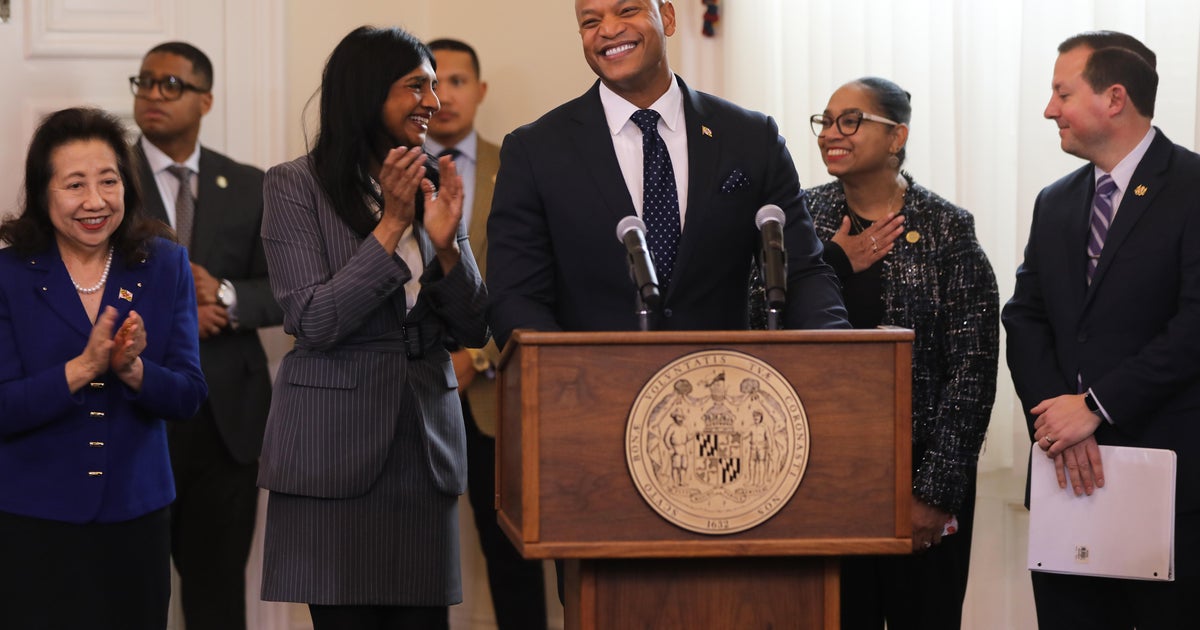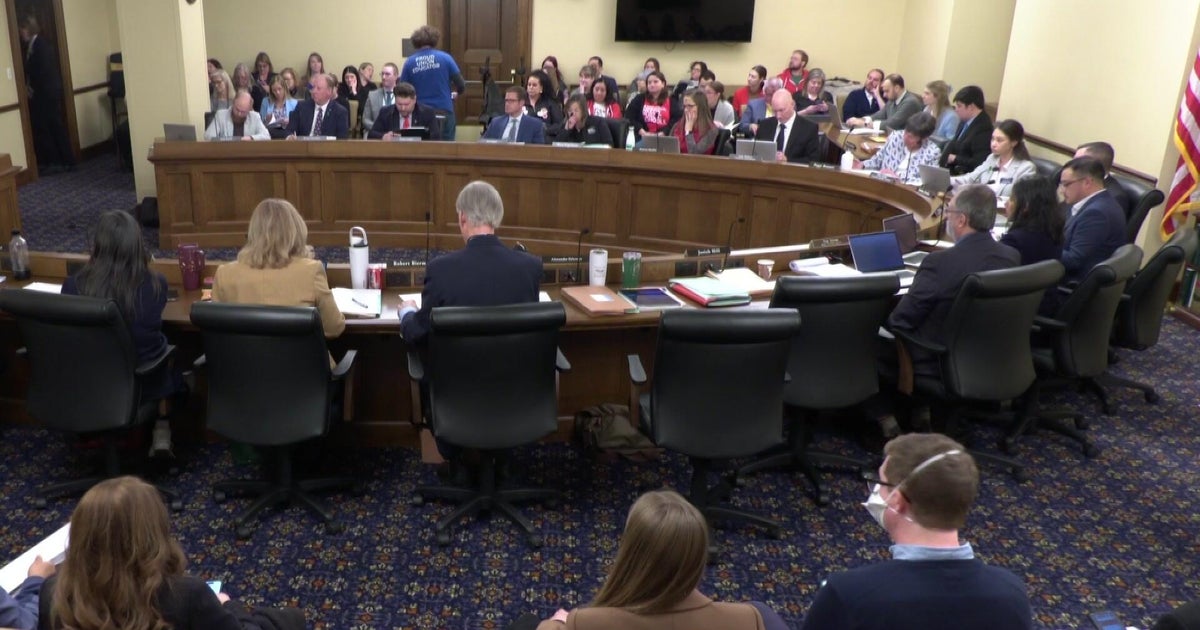Federal appeals panel upholds Illinois assault weapons ban
CHICAGO (CBS) -- A federal appeals court ruling on Friday upheld the assault weapons ban passed by the State of Illinois at the beginning of the year.
The ruling was on six related lawsuits that were consolidated by the court.
The Protect Illinois Communities Act bans the sale of assault-style weapons and high-capacity magazines, and requires existing owners of those weapons to register them with Illinois State Police.
State lawmakers approved the ban in early January, and Gov. JB Pritzker quickly signed it into law. Before signing the bill, Pritzker invoked the memory of the July 4th parade mass shooting in Highland Park last year – which left seven people dead and 36 injured, and left a 2-year-old boy parentless and wandering around.
The shooter used a legally-purchased semiautomatic weapon.
The legislation banned dozens of specific brands or types of rifles and handguns, .50-caliber guns, attachments and rapid-firing devices. No rifle will be allowed to accommodate more than 10 rounds, with a 15-round limit for handguns.
On April 28, U.S. District Judge Stephen McGlynn in East St. Louis issued a 29-page injunction ruling the ban was unconstitutional – because it restricted a person's right to defend themselves.
In his ruling, McGlynn noted that the assault weapons ban was passed in the wake of the deadly mass shooting at the July 4th parade in Highland Park last summer.
"As Americans, we have every reason to celebrate our rights and freedoms, especially on Independence Day. Can the senseless crimes of a relative few be so despicable to justify the infringement of the constitutional rights of law-abiding individuals in hopes that such crimes will then abate or, at least, not be as horrific?" McGlynn wrote. "The simple answer at this stage in the proceedings is 'likely no.'"
On May 4, the U.S. Seventh Circuit Court of Appeals put a hold on that injunction. On Friday, a three-judge appeals panel from that court – composed of Judges Frank H. Easterbrook, Diane P. Wood, and Michael B. Brennan – ruled 2-1 to uphold the ban, in part on the grounds that other constitutional rights have limits under the law, and the Second Amendment is not different.
"[A]s we know from long experience with other fundamental rights, such as the right to free speech, the right peaceably to assemble, the right to vote, and the right to free exercise of religion, even the most important personal freedoms have their limits," the panel wrote. "Government may punish a deliberately false fire alarm; it may condition free assembly on the issuance of a permit; it may require voters to present a valid identification card; and it may punish child abuse even if it is done in the name of religion."
However, the panel did acknowledge that there is an issue with where to draw the line for which "arms" may be kept by individuals versus which may not.
"Everyone can agree that a personal handgun, used for self-defense, is one of those Arms that law-abiding citizens must be free to 'keep and bear.' Everyone can also agree, we hope, that a nuclear weapon such as the now-retired M388 Davy Crockett system, with its 51-pound W54 warhead, can be reserved for the military, even though it is light enough for one person to carry," the panel wrote. "Many weapons, however, lie between these extremes."
The State of Illinois decided to regulate assault weapons and high-capacity magazines, in a decision that "is valid only if the regulated weapons lie on the military side of that line and thus are not within the class of Arms protected by the Second Amendment," the panel wrote.
Examining legal precedent as laid out by the U.S. Supreme Court decisions, District of Columbia v. Heller, McDonald v. City of Chicago, Caetano v. Massachusetts, and New York State Rifle & Pistol Association v. Bruen, the appeals panel ruled the state is likely to prevail in its contention that the weapons under the ban fall on the "military" side of the line, the panel ruled.
All four of the cited precedents came down in favor of extended gun rights. Heller (2008) and McDonald (2010) enshrined the individual right to have a handgun for self-defense in one's home under the Second Amendment – the latter did away with a ban on handgun ownership that had dated back to 1982. Bruen ended a requirement for people to demonstrate a particular need to get a license to carry a concealed gun in public, while Caetano vacated the conviction of a woman who had kept a stun gun for self-defense purposes.
The appeals panel also wrote that it did not see anything "particularly onerous" about a registration requirement for those who already own weapons that would be subject to the ban. One plaintiff in a lawsuit had argued that the registration requirement ran afoul of his Second Amendment rights and worried it could lead to confiscation of his weapons in the future.
Judge Brennan issued a lengthy dissent in the ruling – arguing that the Illinois assault weapon ban "dramatically redefines the legality of firearms and magazines in Illinois and "goes far beyond the prohibition of 'assault rifles.'" He wrote that the act eliminates "the ownership, possession, and use for self-defense of many of the most commonly-owned semiautomatic handguns, shotguns, rifles, and magazines."
The Illinois Supreme Court also upheld the ban at the state level in August.
Mayor Brandon Johnson issued a statement Friday in support of the appeals panel decision:
"I welcome today's decision by the 7th Circuit Court to uphold the Protect Illinois Communities Act. This landmark legislation is an important step for our communities, providing common-sense gun control measures that have been so desperately needed in our city and throughout the state.
"This decisive measure will aid in keeping weapons of war out of our neighborhoods and off our streets, creating safer communities for all."
Attorney General Kwame Raoul also issued a statement in favor of the decision:
"I am pleased with the 7th Circuit's decision in these critically-important cases, which means my office has now successfully defended the Protect Illinois Communities Act in appeals before the 7th Circuit and the Illinois Supreme Court. Assault weapons were intended for military use, and the Protect Illinois Communities Act is a tool to prevent them from being used to cause devastation in our schools, places of worship and recreation spaces. This decision is the result of many hours of work by the staff of the Attorney General's office, and I thank them for their dedication and service to the people of Illinois."
Lt. Gov. Julianna Stratton concurred:
"Today, the 7th Circuit Court of Appeals affirmed that Illinois is on the right side of history when it comes to protecting our communities from the dangers of gun violence by upholding the Protect Illinois Communities Act. Upholding the ban of assault-style weapons, high-capacity magazines, and more, we are continuing on our promise of building safer, stronger communities. I thank Governor Pritzker, the General Assembly and the thousands of advocates who came together to say, "enough is enough."
There is more work to do, and while we acknowledge the significance of this ruling, may we never forget the countless lives lost and disrupted by senseless gun violence. In Illinois, we will continue to look forward, reinforcing this common-sense law and I hope that Congress will do the same."


